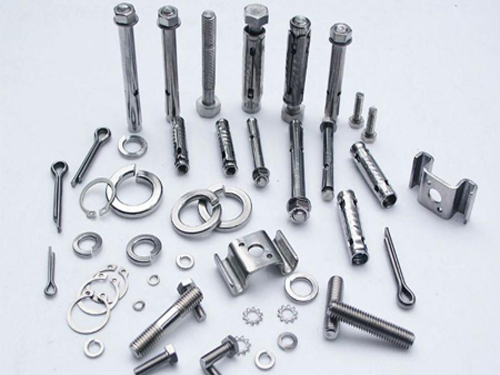The implementation of clean production in the electroplating process of fastener manufacturing is an external requirement for building a resource-saving and environment-friendly society in China, and it is also an internal requirement for the sustainable development of the fastener industry. Electroplating plays an important role in service production and landscaping. Ningbo Yinzhou Leisheng Machinery Co.,Ltd , https://www.nblscasting.com
As a metal protective layer, according to statistics, the steel products and products scrapped by corrosion account for 1/2 of the global steel production each year, and electroplating can greatly reduce this corrosion. In particular, the widely used fastener products can greatly prolong the service life after electroplating. , Save a lot of raw materials, in a variety of components on the electroplating treatment, can give the material decoration appearance, functional coating, increasing the value of fasteners. Electroplating consumes a lot of valuable resources such as water, electricity, and metals. At the same time, due to the discharge of solid waste, acid gas and heavy metal ion waste water pollution pose a huge pollution to the atmosphere and water resources.
The "ROHS" Directive of the European Union was settled on July 1, 2006. Eight months later, China's "Measures for the Control of Pollution Caused by Electronic Information Products" was formally introduced on March 1, 2007. Last year, the Chinese government promulgated the Clean Production Promotion Act. The State Economic and Trade Commission also issued Order No. 32 and Order No. 40, which explicitly proposed the elimination of cyanide-containing plating. Reiterated the industrial policy of eliminating cyanide-containing plating. Facing the many green instructions issued in recent years, many new issues have been proposed for the fastener electroplating industry.
Cleaner production is an innovative idea. The idea is to apply an overall prevention environmental strategy to the production process, products and services to improve ecological efficiency and reduce risks to humans and the environment.
The electroplating process includes: galvanizing, hard chrome plating, decorative chrome plating, electroless nickel plating, blackening of steel, chemical oxidation of aluminum and magnesium alloys, and pretreatment processes. In these production processes, it is required to save raw materials and energy, eliminate toxic materials, and reduce the amount and toxicity of all wastes. For fastener products, it is required to reduce the adverse effects of the entire production cycle from the acquisition of raw materials to the final processing of products.
In order to achieve the goal of energy conservation and emission reduction, the fastener industry must solve the following problems.
1, the purchase of raw materials. A good raw material can guarantee the quality of the final product. The steel product must be identified with the authentic product to prevent the aluminum content from exceeding the standard.
2, the purchase of additives. The tested Chromium-free (Hg-Cr-Cr) plating solution should be used, and there is no doubt as to whether the additives used are banned. As the saying goes: "Buy goods to buy really do not worry about selling."
3, strengthen the plating treatment. Prevent the use of chromate solution as a post-plating treatment, use an environmentally friendly plating post-treatment solution containing no chromate, select non-hexavalent chromium passivation, hexavalent chromium plating, replace chromium plating, replace cadmium plating, and chemically deposit nickel Lead-free element cadmium, functional electronic plating of lead-free, non-cyanide metal plating, non-cyanide chemical deposition of zinc and many other new processes.
4, strictly regulate the process flow. Avoid cross-contamination between processes, the production site to do "five", standardization of tooling equipment; placement of goods placement; standardization of the layout; civilization habits of hygiene;
5. Give play to the role of experts Ask experts to give lectures on ROHS knowledge or participate in corporate decisions or serve as consultants. Let it provide advice and suggestions for corporate countermeasures and protect the company.
6. Strengthen training. Improve the professionalism of technicians. Around the production site, the quality of work of the functional departments and the operational capabilities of the front-line staff were improved so that the employees could work in an orderly manner according to the standard process flow.
The rapid development of the fastener industry has caused more or less damage to the environment in which human beings live. In order to eliminate various unfavorable factors, more standards will emerge in the future (it is expected that SA18000 will rise to the occupational health and safety management system ISO18000 in the future), which is an irreversible trend of the times.
The electroplating industry of fasteners should clearly recognize that its own social responsibilities through systematic implementation of pollution prevention environmental strategies can effectively improve the extensive processing methods still common in electroplating to achieve “energy saving, consumption reduction, emission reduction, and efficiency enhancementâ€. The expected goal is to create a good "human settlement environment, green harmony" and fulfill their duties, in order to win a more brilliant tomorrow and work hard.